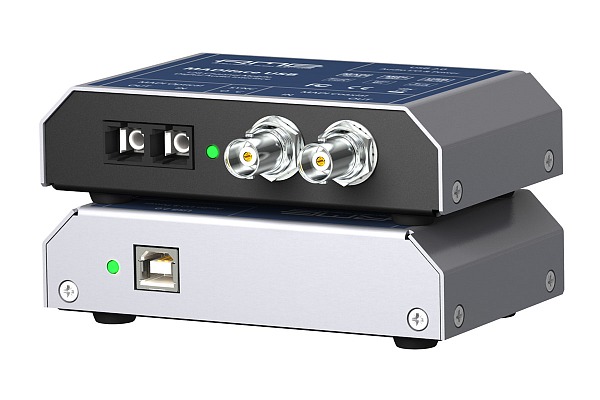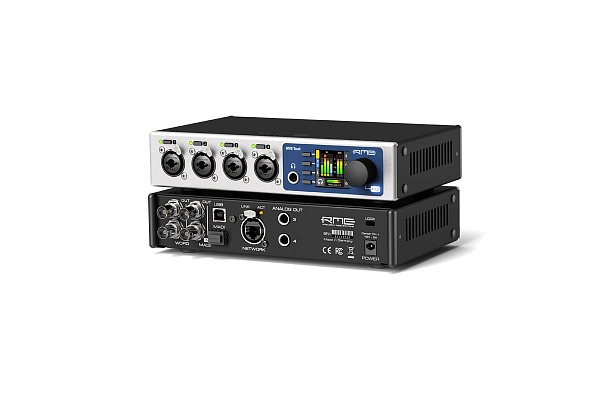RME
I64 MADI CARD
MADI OPTION CARD FOR
MICSTASY, ADI-8QS & DMC 842
The I64 MADI Card extends the ADI-8 QS with a 64-channel MADI input and output and a flexible Digital Patch Mode.
The I64 MADI Card provides the Micstasy with a 64-channel MADI input and output. Coaxial and optical output work in parallel with the AES/EBU and ADAT output, so they output the same data.
The card has one MADI input each coaxial and optical. Input switching is automatic based on a detected and valid input signal, which simultaneously supports redundancy operation, since if one signal fails, the card immediately switches to the other input.
MADI serves as an optional clock source (Clock section, OPTN), signal source of the DA converter, destination of the AD conversion, and for loop-through. Since the ADI-8 QS occupies only 8 channels, the I64 MADI Card loops through up to 56 channels. The serial cascading of the QS works on this basis. Incoming data reaches the output 1:1, only one block of eight is replaced by the data of the ADI-8 QS. In this way, up to 8 ADI-8 QS can be serially wired via MADI. At the output of the eighth device, 64 channels are then available bundled in one line. When serially cabling multiple devices, the Delay Compensation function eliminates a sample offset between the devices.
With the I64 MADI Card, the Micstasy and ADI-8 QS also become remotely controllable via MADI. At the same time MIDI data is transmitted via MADI.
On the DMC-842 the MADI input serves on the one hand as optional clock source (Clock section, OPTN), but also as loop-through input. Since the DMC-842 occupies only 8 channels, the I64 MADI Card loops through up to 56 channels
The serial cascading of the DMC-842 works on this basis. Incoming data is looped through 1:1 to the output, only one block of eight is replaced by the data of the DMC-842. In this way, up to 8 DMC-842s can be serially wired via MADI. At the output of the eighth device, 64 channels of DMC-842 are then available bundled in one line.
With the I64 MADI Card, the DMC-842 also becomes remote controllable via MADI. At the same time, MIDI data is transmitted via MADI.
With serial cabling, the MADI I/O of each DMC-842 causes a delay of 3 samples. Consequently, in the MADI data stream of the last device, the data of all upstream devices are delayed. The problem of this offset is solved by the Delay Compensation function.
When using the I64 MADI Card, 8 channels are also optionally available as return path to send audio via MADI to the DMC-842 and output via ADAT, AES or analog. For example, stage or studio monitors can be controlled with the DMC-842. In this mode, the analog input signal and the data to be looped through are still available at the MADI output.




